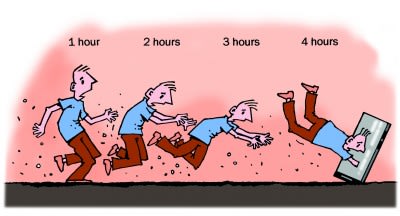Says lead author Dr Andrew Przybylski, of the Oxford Internet Institute at the University of Oxford
A new study argues that while a lot has been said by scientists and paediatricians about the possible dangers of teenagers spending time on digital devices or computers, there is little robust evidence to back up their claims. The researchers say they are the first to systematically test for links between well-being and screen time measured continuously, separately for different digital activities and days of the week. They have proposed the Goldilocks theory: that there is a point between low and high use of technology that is ‘just right’ for teenagers when their sense of well-being is boosted by having ‘moderate’ amounts of screen time. The researchers suggest this may be because digital connectivity can enhance creativity, communication skills and development. Their findings also suggest that the relationship between screen time and well-being is weak at best, even when young peop...
Want to see the rest of this article?
Would you like to see the rest of this article and all the other benefits that Issues Online can provide with?
- Useful related articles
- Video and multimedia references
- Statistical information and reference material
- Glossary of terms
- Key Facts and figures
- Related assignments
- Resource material and websites

 A ‘Goldilocks amount of screen time’ might be good for teenagers’ well-being
A ‘Goldilocks amount of screen time’ might be good for teenagers’ well-being









